Education in Durham
From reconstruction through Jim Crow segregation to today, the history of Black Durham's educational journey is marked by triumphs over systemic racism and a commitment to excellence.
Durham, North Carolina is a testament to African American resilience and determination the pursuit of education. Despite facing discrimination and limited resources, African American communities established schools to provide education for their children. Institutions like the Whitted School, founded in 1891 as the city's first grade school for African American students, became vital learning centers when educational opportunities were scarce.
Throughout the Jim Crow era, African American educators and administrators in Durham fought tirelessly for equal educational opportunities. Figures like John Merrick, C.C. Spaulding, and William Gaston Pearson (W. G.) played instrumental roles in advancing African American education and advocating for communities. Their efforts paved the way for desegregation and the integration of schools in Durham, leading to greater access to quality education for African American students.
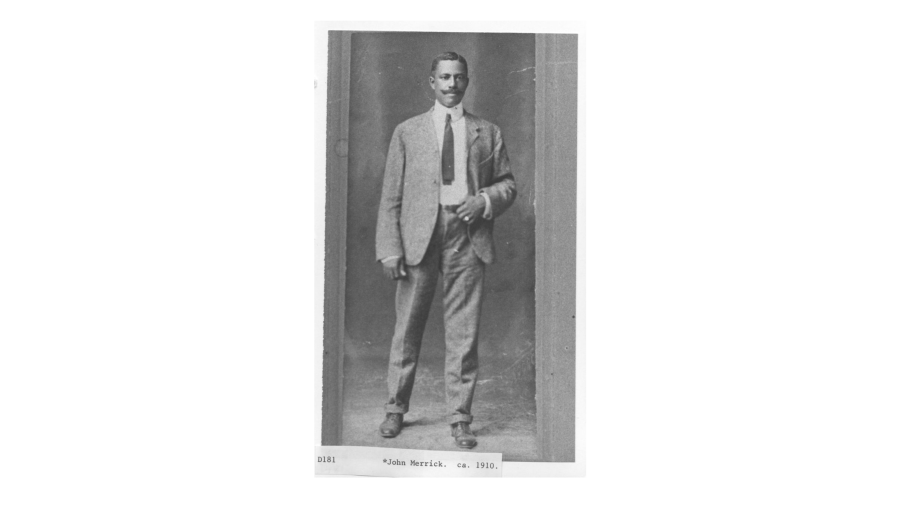
While John Merrick was primarily a businessman, he played a vital role across multiple community levels, including education advocacy. Photo: Durham County Library Historical Photo Collection
Dr. Aaron Moore, Durham's first black physician, founder of Lincoln Community Health Center and a pillar of the city's black business community, established the Durham Colored Library in 1913. The Durham Colored Library later became the Stanford L. Warren Library. Because of Moore's advocacy, Durham schools benefitted from The Jeanes Fund and Rosenwald grants, both of which provided more opportunities to overcome the systemic barriers to Black rural education across the state.
Rosenwald schools were a product of a community-based movement in the early 1900s, ignited by a collaboration between Black education leader and reformer Booker T. Washington and philanthropist Julius Rosenwald. More Rosenwald Schools were erected in North Carolina than in any other state, and 18 operated in Durham. These schools were a significant factor in the education of African American students in Durham.
In 1907, Anna Jeanes, a Quaker, pledged one million dollars to start The Jeanes Fund to improve primary education for Black students in rural American schools. Beginning in 1915, Durham's Jeanes teachers, who were mostly female and all Black, often functioned as superintendents of Durham's Black schools, working under challenging conditions to improve education, public health and general living conditions for their students and community. Mrs. Carrie T. Jordan was an experienced educator and Jeanes supervisor who taught at Hillside Park School and who instituted Durham's first county-wide commencement for African American Schools.
The Jeanes supervisors and the African-American teachers of Durham's Rosenwald schools worked with what they had to make the lives of their students, parents, and communities the best they could be in the context of a legally entrenched inequality. They taught a doctrine of self-improvement, hope for the future, and racial pride. These educators provided the foundation for the next generations, leading the long fight for civil rights.
In the post-civil rights era, African American educators continued to make significant contributions to Durham's educational landscape. Leaders like Ann Atwater, an outspoken advocate for desegregation and community organizer, left an indelible mark on the city's history. Additionally, the rise of grassroots movements and community-led initiatives furthered the cause of educational equity and empowerment for African American students.
Today, the legacy of African American education in Durham endures through the dedication and perseverance of educators, administrators, and community leaders. Educators and administrators in Durham continue to strive for excellence and foster a culture of inclusivity and academic achievement. As Durham continues to evolve, the spirit of African American education remains a guiding force, inspiring future generations.
WHITTED SCHOOL
Founded in 1891 as the city's earliest grade school for Black students, The Whitted School was a vital learning center when educational opportunities were scarce. In use through the mid 1970s as a grade school and later Hillside Park High School, it is now the home for a preschool and a senior living housing center, The Whitted Schools and Veranda at Whitted.
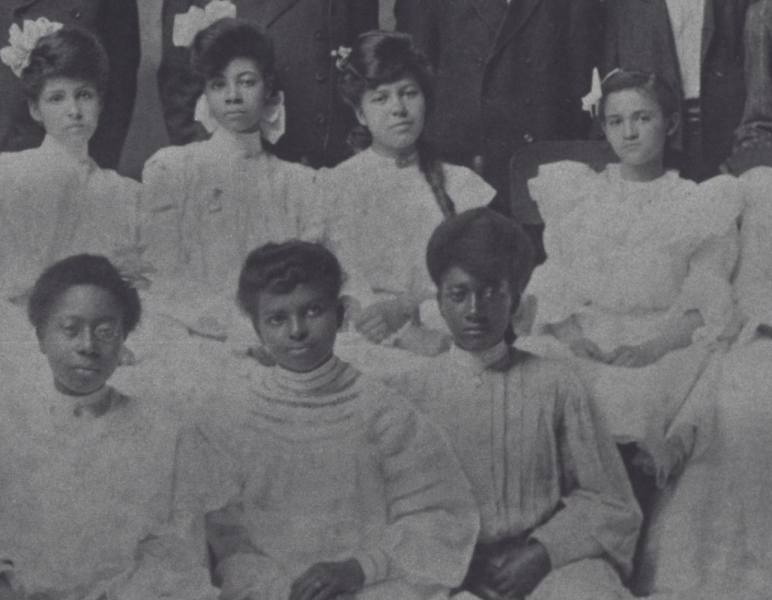
The Whitted School was a vital institution contributing to the success off Black children. Photo: Durham County Library Historical Photo Collection
JOHN HOPE FRANKLIN CENTER AT DUKE UNIVERSITY
The Franklin Center was inspired by historian Dr. John Hope Franklin. Franklin was a Duke University professor emeritus and recipient of the Presidential Medal of Freedom and Chairman of President Clinton's Commission on Race Relations. The Franklin Center is a home for intellectual inquiries across society's most critical subjects. The Center extends an open invitation to students and the public to engage and learn.
RUSSELL SCHOOL
Rosenwald schools were a product of a community-based movement in the early 1900s ignited by a collaboration between Black education leader and reformer Booker T. Washington and philanthropist Julius Rosenwald. Built in the 1920s and named for local supporter Thomas Russell, the Russell School is the only standing building of Durham County’s 18 historic Rosenwald schools.
MERRICK-MOORE HIGH SCHOOL
Named after John Merrick and Aaron McDuffie Moore, M.D., Merrick-Moore was a powerhouse in high school athletics for many years, winning its first state championship in football in 1964-65. Merrick-Moore graduated its last class in 1969.
DURHAM COUNTY LIBRARY, STANFORD L. WARREN BRANCH
Dr. Aaron Moore established the Durham Colored Library in 1913. It later became the Stanford L. Warren Library. Dr. Stanford Warren donated funds to purchase the current site in 1939. Named for his daughter, a librarian, the Selena Warren Wheeler collection is recognized as one of the best African American collections in the South.
more stories from the African American Heritage Guide
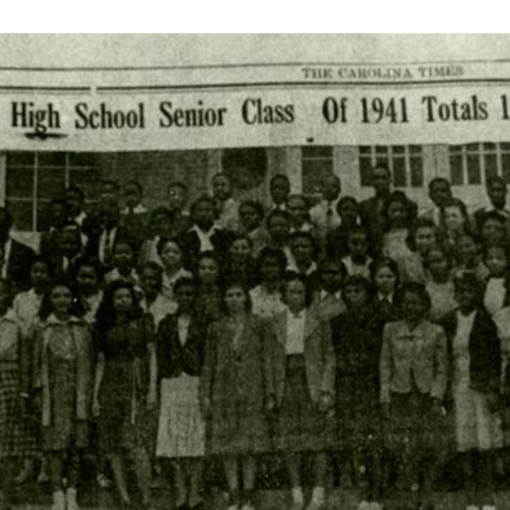
Hillside High School The proud history and storied legacy of Hillside High School. Learn More
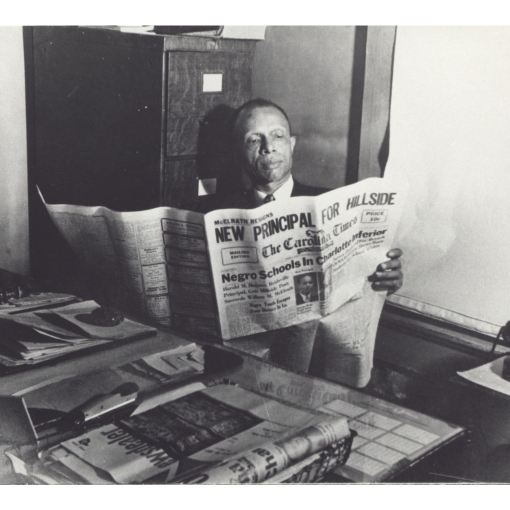
Louis Austin: The Spiritual Architect of Durham's Black Press The history of Black journalism is synonymous with the name Louis Austin, a community member who devoted his career to "The Truth Unbridled." Learn More
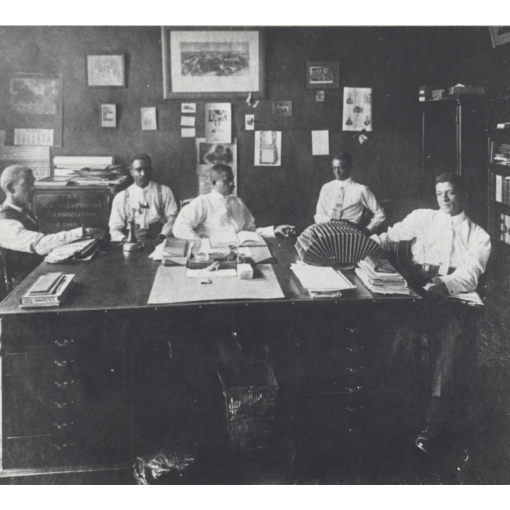
Durham's Parrish Street: A Legacy of Black Wall Street “Three men began the economic building of black Durham: a minister with college training, a physician with professional training, and a barber who saved his money”- W.E.B. DuBois Learn More

About the African American Heritage Guide Welcome to Black Durham – where the past meets the present, and African American stories continue to unfold with grace, dignity, and pride. May this guide offer you moments of understanding, connection and celebration as you embark on this unforgettable exploration of African American heritage in the Bull City. Learn More